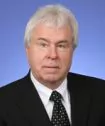THE KARUK TRIBE EMERGENCE
With a new stunning administrative victory in hand, the Karuk Tribe of California is already planning its path to the economic opportunities fueled by casino revenues that many tribes have enjoyed for years but which were denied to it.
The Karuks have long been an effective force for change even though they had to forge their achievements with meager financial resources since much of its historic territory in far Northern California consists of mountainous terrain primarily accessed by the narrow Klamath River highway built on the banks of that winding river and rarely visited by large numbers of people due to its remoteness. Still, the Tribe has long been known throughout Indian Country for its stable and effective tribal government and leadership as well as its leadership in such matters as the effort to achieve the removal of dams on the Klamath River, directly resulting in the execution two years ago of the landmark Klamath Basin Restoration Agreement and Klamath Hydroelectric Settlement Agreement.
The Tribe was able to manage its money and grants to develop comprehensive services for its membership of approximately 4,000 largely spread along the river basin with primary population centers at the small river towns of Happy Camp and Orleans as well as the larger city of Yreka at the eastern end of its historic occupancy area.
Yreka always was the key to the economic future for the Tribe because of its location on Interstate 5 just 30 miles south of the Oregon border. Happy Camp and Orleans are far from the interstate down the river and economically unviable for any casino development.
The tribal presence in Yreka is both long-standing and prominent, featuring both a major tribal housing development on more than 200 acres of land in trust status and a health clinic that generously opened its doors to non-tribal members living in the area. But Yreka as a gaming location was not available due to a determination in 2004 by the National Indian Gaming Commission that the Tribe could not use any of its Yreka land for gaming because it was accepted into trust status after enactment of the federal Indian gaming law and the Tribe did not qualify for any of the exceptions allowing gaming on "after acquired lands." Since Yreka was the only economically viable gaming location within Karuk territory, the decision was devastating.
The 2004 ruling was a particularly brutal strike against any future Karuk gaming in Yreka because it concluded that the Tribe did not qualify as a restored tribe that would have opened the door for invoking the "restored tribe/restored land" exception in the federal Indian gaming law. Qualifying for that exception was the key to tribal gaming on the Yreka land (which was taken into trust after the federal law's enactment in late 1988). The only apparent alternative was seeking approval for the site as "off-reservation" land, necessitating two steps: Interior Secretary approval and subsequent approval by the Governor. However, the California Legislature can block gubernatorial consent, and the state's large gaming tribes have exercised their growing political influence to oppose such projects in the past. The reality was that the off-reservation alternative was a long shot at best.
The Tribe subsequently decided to pursue overturning the negative ruling, a strategy that included retaining prior outside tribal legal counsel and an ethnohistory expert to develop the legal and factual case for revisiting the 2004 NIGC determination. Over a period of several years, the tribal team conducted extensive ethnohistorical research and published several volumes of reports demonstrating tribal ties to the Yreka lands as well as the facts of federal termination and restoration of federal recognition, two critical ingredients not adequately developed during the previous unsuccessful effort. The Tribe also developed the case for invoking a critical provision of applicable federal regulations that authorized a new federal assessment. Once that provision was invoked, the materials developed subsequent to 2004 were both relevant and important.
The long Karuk effort resulted in the April 9 reversal, which in turn opens the door to what will be a very active tribal effort to develop the gaming facility that has eluded the Tribe for so long. Indeed, the Tribe was one of the first California tribes to formally request a Compact after state voters approved tribal gaming in a vote that led to the first Class III Gaming Compacts in 1999. However, for reasons never explained, Karuk was excluded from the 1999 Compact negotiations with a resulting exclusion from gaming until now. During this same period of time, it also has faced numerous legal challenges to various tribal activities, including litigation prosecuted by the City of Yreka opposing trust acceptance of the land upon which the tribal health clinic is located based on some undocumented "notion" that the clinic building on a tiny 0.6 acre parcel somehow was a "Karuk Trojan Horse" that could be converted into a casino after trust acceptance. That litigation was both unsuccessful and, in any event, irrelevant to the Tribe's gaming efforts.
This week, the Tribe will meet with both City and Siskiyou County officials to discuss its plans for development. If the past is prologue, the tribal success in moving forward is a foregone conclusion. As for the Karuk members, the universal sentiment was summed up in the words of one who told this writer, "This is a happy day!"
As the Karuk member said, it is a happy day.
DISCLOSURE: The author represented the Tribe in the successful effort discussed in the story. Throughout this project, he worked closely with Dr. Stephen Dow Beckham, the noted ethnohistorian who has a longterm professional relationship with both the Karuk Tribe and the author.
The content of this article is intended to provide a general guide to the subject matter. Specialist advice should be sought about your specific circumstances.

